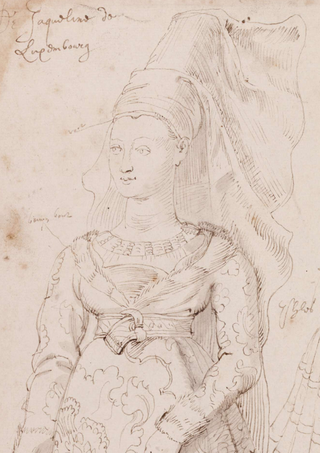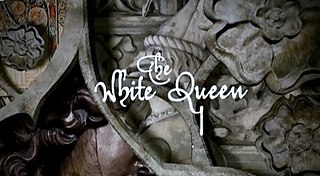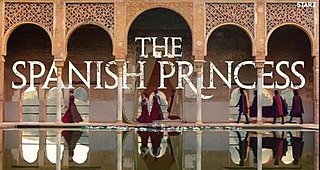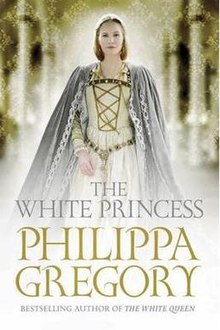
Perkin Warbeck was a pretender to the English throne claiming to be Richard of Shrewsbury, Duke of York, who was the second son of Edward IV and one of the so-called "Princes in the Tower". Richard, were he alive, would have been the rightful claimant to the throne, assuming that his elder brother Edward V was dead and that he was legitimate—a point that had been previously contested by his uncle, King Richard III.

Elizabeth Woodville, later known as Dame Elizabeth Grey, was Queen of England from 1 May 1464 until 3 October 1470 and from 11 April 1471 until 9 April 1483 as the wife of King Edward IV. She was a key figure in the Wars of the Roses, a dynastic civil war between the Lancastrian and the Yorkist factions between 1455 and 1487.

Lady Margaret Beaufort was a major figure in the Wars of the Roses of the late fifteenth century, and mother of King Henry VII of England, the first Tudor monarch. She was also a second cousin of Kings Henry VI, Edward IV and Richard III of England.

The Princes in the Tower refers to the mystery of the fate of the deposed King Edward V of England and his younger brother Prince Richard of Shrewsbury, Duke of York, heirs to the throne of King Edward IV of England. The brothers were the only sons of the king by his queen, Elizabeth Woodville, living at the time of their father's death in 1483. Aged 12 and 9 years old, respectively, they were lodged in the Tower of London by their paternal uncle and England's regent, Richard, Duke of Gloucester, in preparation for Edward V's forthcoming coronation. Before the young king's coronation, however, he and his brother were declared illegitimate by Parliament. Gloucester ascended the throne as Richard III.

Margaret Plantagenet, Countess of Salisbury, was the only surviving daughter of George Plantagenet, Duke of Clarence and his wife Isabel Neville. As a result of Margaret's marriage to Richard Pole, she was also known as Margaret Pole. She was one of just two women in 16th-century England to be a peeress in her own right without a husband in the House of Lords.

Cecily Neville was an English noblewoman, the wife of Richard, Duke of York (1411–1460), and the mother of two kings of England—Edward IV and Richard III. Cecily Neville was known as "the Rose of Raby", because she was born at Raby Castle in Durham, and "Proud Cis", because of her pride and a temper that went with it, although she was also known for her piety. She herself signed her name "Cecylle".

Philippa Gregory is an English historical novelist who has been publishing since 1987. The best known of her works is The Other Boleyn Girl (2001), which in 2002 won the Romantic Novel of the Year Award from the Romantic Novelists' Association and has been adapted into two films.

Jacquetta of Luxembourg was a prominent figure in the Wars of the Roses. Through her short-lived first marriage to the Duke of Bedford, brother of King Henry V, she was firmly allied to the House of Lancaster. However, following the emphatic Lancastrian defeat at the Battle of Towton, she and her second husband Richard Woodville sided closely with the House of York. Three years after the battle and the accession of Edward IV of England, Jacquetta's eldest daughter Elizabeth Woodville married him and became queen consort of England. Jacquetta bore Woodville 14 children and stood trial on charges of witchcraft, of which she was exonerated.

Esther "Essie" Davis is an Australian actress and singer, best known for her roles as Phryne Fisher in Miss Fisher's Murder Mysteries and its film adaptation, Miss Fisher & the Crypt of Tears, and as Amelia Vanek in The Babadook. Other major works include a recurring role as Lady Crane in season six of the television series Game of Thrones, Sister Iphigenia in Lambs of God, and the role of Ellen Kelly in Justin Kurzel's True History of the Kelly Gang.

Henry VII of England has been depicted a number of times in popular culture.
Edward IV of England has been depicted in popular culture a number of times.

Mary I of England has been depicted in popular culture a number of times.

The White Queen is a 2009 historical novel by Philippa Gregory, the first of her series The Cousins' War. It tells the story of Elizabeth Woodville, queen consort of King Edward IV of England. The 2013 BBC One television series The White Queen is a 10-part adaptation of Gregory's novels The White Queen, The Red Queen (2010) and The Kingmaker's Daughter (2012), and features Rebecca Ferguson as Elizabeth Woodville.

The White Queen is a British historical drama television drama serial based on Philippa Gregory's historical novel series The Cousins' War. The first episode premiered on BBC One on 16 June 2013 in the UK.

The Lady of the Rivers is a 2011 historical novel by Philippa Gregory, part of her series The Cousins' War. The story is narrated by Jacquetta of Luxembourg, mother of Elizabeth Woodville, and covers the reign of the Lancastrian King Henry VI. The novel serves as a prequel to Gregory's The White Queen (2009), the story of Elizabeth's reign as Queen consort of England.

The Red Queen is a 2010 historical novel by Philippa Gregory, the second of her series The Cousins' War. It is the story of Margaret Beaufort, mother of Henry VII of England. The 2013 BBC One television series The White Queen is a 10-part adaptation of Gregory's novels The White Queen (2009), The Red Queen and The Kingmaker's Daughter (2012), and features Amanda Hale as Margaret Beaufort.

The King's Curse is a 2014 historical novel by Philippa Gregory, part of her series The Cousins' War. A direct sequel to The White Princess, it follows the adult life of Margaret Pole, Countess of Salisbury, the daughter of George Plantagenet, 1st Duke of Clarence and Isabel Neville.

The Playground, LLC, commonly referred to as Playground Entertainment, is an independent television, film, and theater production company with offices in New York and London. It was founded in 2012 by Sir Colin Callender, former President of HBO Films.

The White Princess is a historical drama television miniseries developed for Starz. It is based on Philippa Gregory's 2013 novel of the same name and, to a lesser extent, its 2014 sequel The King's Curse. It is a sequel to the 2013 miniseries The White Queen, which adapted three of Gregory's previous novels, and begins immediately where The White Queen finished.

The Spanish Princess is a historical drama television limited series developed by Emma Frost and Matthew Graham for Starz. Based on the novels The Constant Princess (2005) and The King's Curse (2014) by Philippa Gregory, it is a sequel to the miniseries The White Queen and The White Princess. It centres around Catherine of Aragon, the eponymous Spanish princess who became Queen of England as the first wife of King Henry VIII.



















